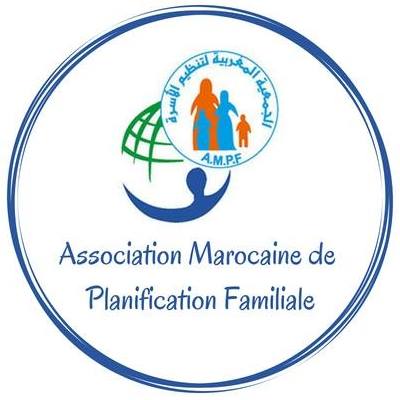

| 31 March 2016
Association Marocaine de Planification Familiale
The Moroccan Family Planning Association (AMPF) is a non-governmental organization, created in 1971 and recognized as being of public utility in 1972. AMPF is under the Honorary Presidency of Her Royal Highness Lalla Meryem and the effective Presidency of Mrs. Zahara Meziane Ammor. The Moroccan Family Planning Association (AMPF) is a member of the International Planned Parenthood Federation (IPPF) since 1971. Thus, it is part of a civil society movement, present internationally and managed locally and nationally, that provides and facilitates access to sexual and reproductive health services and advocates for the rights of all individuals without discrimination or stigmatization: women, youth, and men, especially the underserved and marginalized groups. AMPF's mission is to promote Sexual and Reproductive Health Rights (SRHR), provide comprehensive and quality sexual and reproductive health services, and facilitate access to SRH services for the population, especially the underserved and vulnerable. This mission is part of a global vision of a Morocco where all individuals enjoy their SRH rights and exercise free, informed choice without stigma or discrimination. Our values are: Accountability Social Inclusion Volunteerism Diversity Commitment AMPF has 8 branch committees, about more than 110 active volunteers, several branch youth committees with 1000 youth in total, 27 Service Delivery Centers and an offer of 398,000 various services performed for the benefit of the population in 2019. The main services we offer are gyneacological consultations, ultrasound, screening tests, and biological tests and family planning counselling. Other types of consultations are also available to meet the needs of our beneficiaries.
| 23 January 2025
Bandhu Social Welfare Society
Bandhu Social Welfare Society(Bandhu) is a community led organization which was founded in 1996 and formally registered with the Ministry of Social Welfare (MOSW) and the NGO Affairs Bureau in July 1997. Bandhu’s Mission Bandhu works towards ensuring a dignified life for gender diverse populations by protecting human rights, promoting a sustainable livelihood, improving access to quality health care including SRHR, and enhancing access to social security and gender justice. Bandhu’s Vision Bandhu envisions a society where people from all gender identities are enjoying quality life. Bandhu’s Core Values Gender Diversity: Bandhu is committed to value gender diverse population in all their diversities i.e. class, age, religion, ethnicity, culture, language, caste, class, HIV status, profession, identity and convictions by integrating an intersectional approach. Confidentiality: Bandhu respects the right to privacy and confidentiality of gender diverse populations, including their defenders. Quality of Care (Service): Bandhu aims to promote and provide Quality of Care in services that are built on principles of gender equality & equity, inclusiveness 25 and human rights. These services should be non-discriminatory and non-judgmental. Transparency, accountability and Good Governance: Bandhu works on principles of transparency, openness, accountability and integrity. Reduce inequality and discrimination: Our commitment is to reduce stigma and discrimination in all its forms. Innovation: We are committed to learn from past experience and wisdom of others in order to innovate and improve our efforts.
| 23 January 2025
Population Services and Training Center
Population Services and Training Center (PSTC) is the inheriting organization of Family Planning Services and Training Center (FPSTC) which was created by a government order in 1978. It is - a non-government, not-for-profit voluntary organization registered with the Department of Social Services in 1995 and with NGO Affairs Bureau in 1996 affiliated with Directorate General of Family Planning in 1997 declared as the inheriting organization of FPSTC by the Ministry of Health and Family Welfare in 1997. PSTC has been working for the improvement and uphold the standard of livelihoods of poor and socially disadvantaged people by undertaking various programs and projects particularly, health services focused projects around the country.







